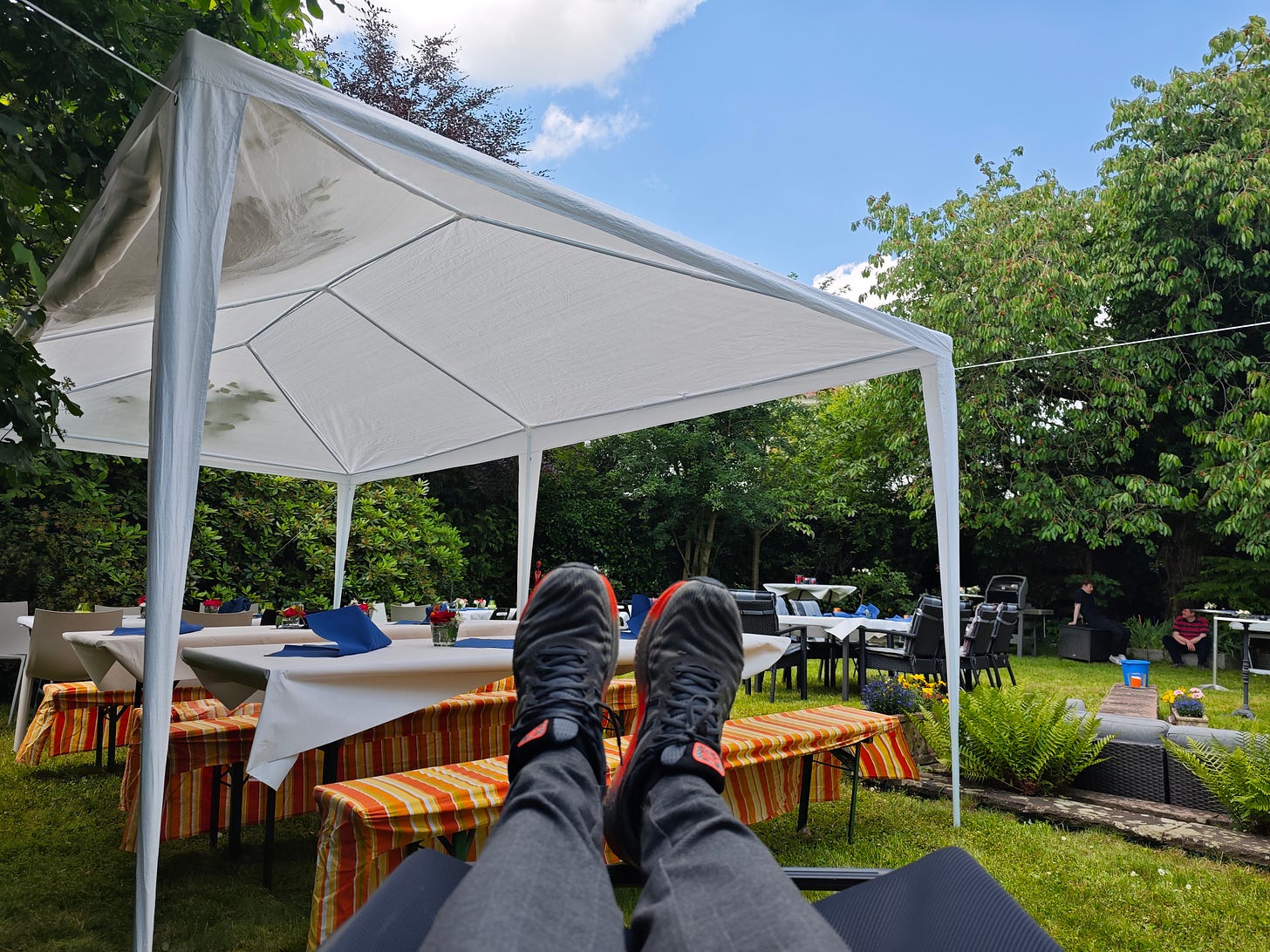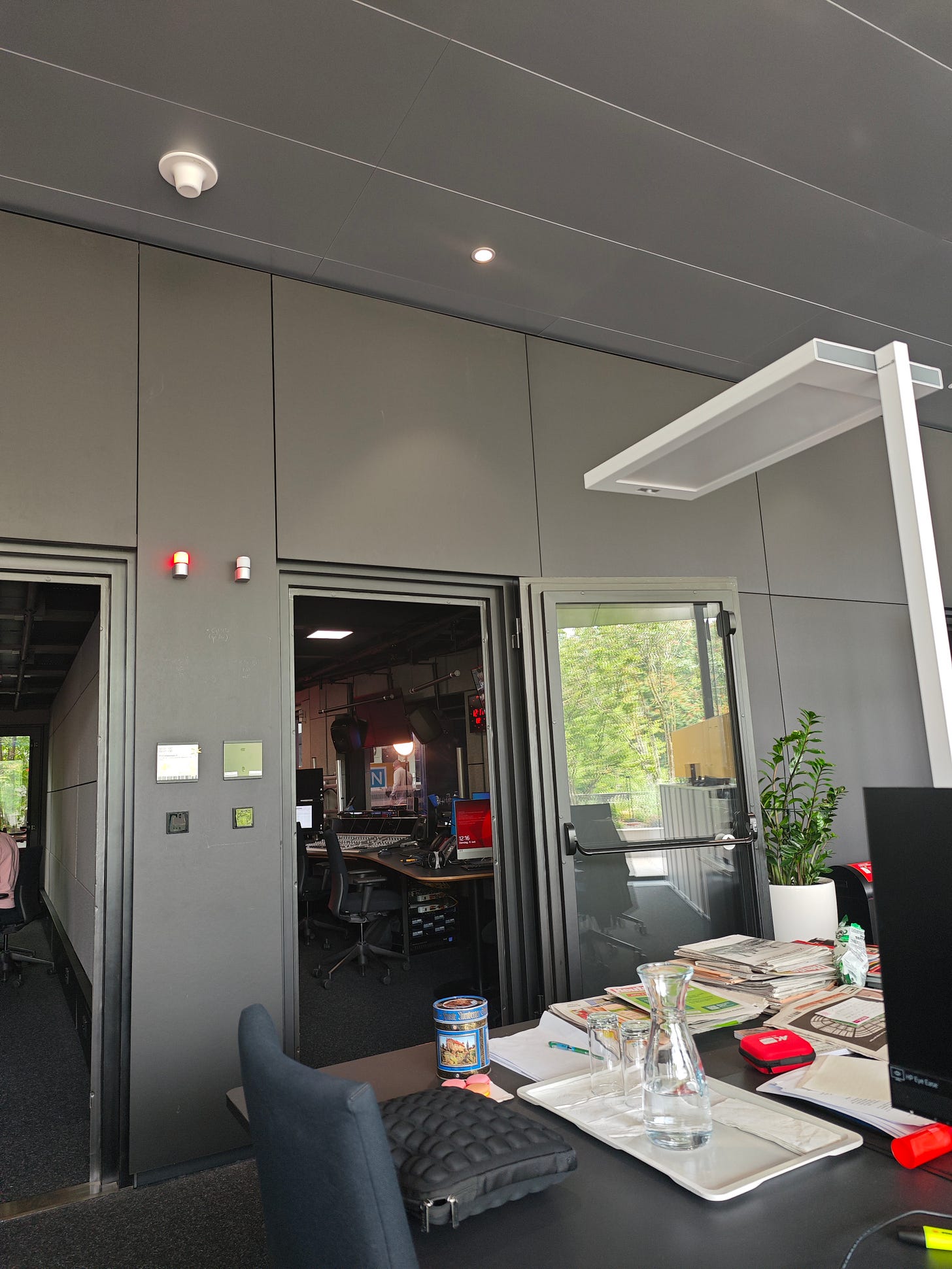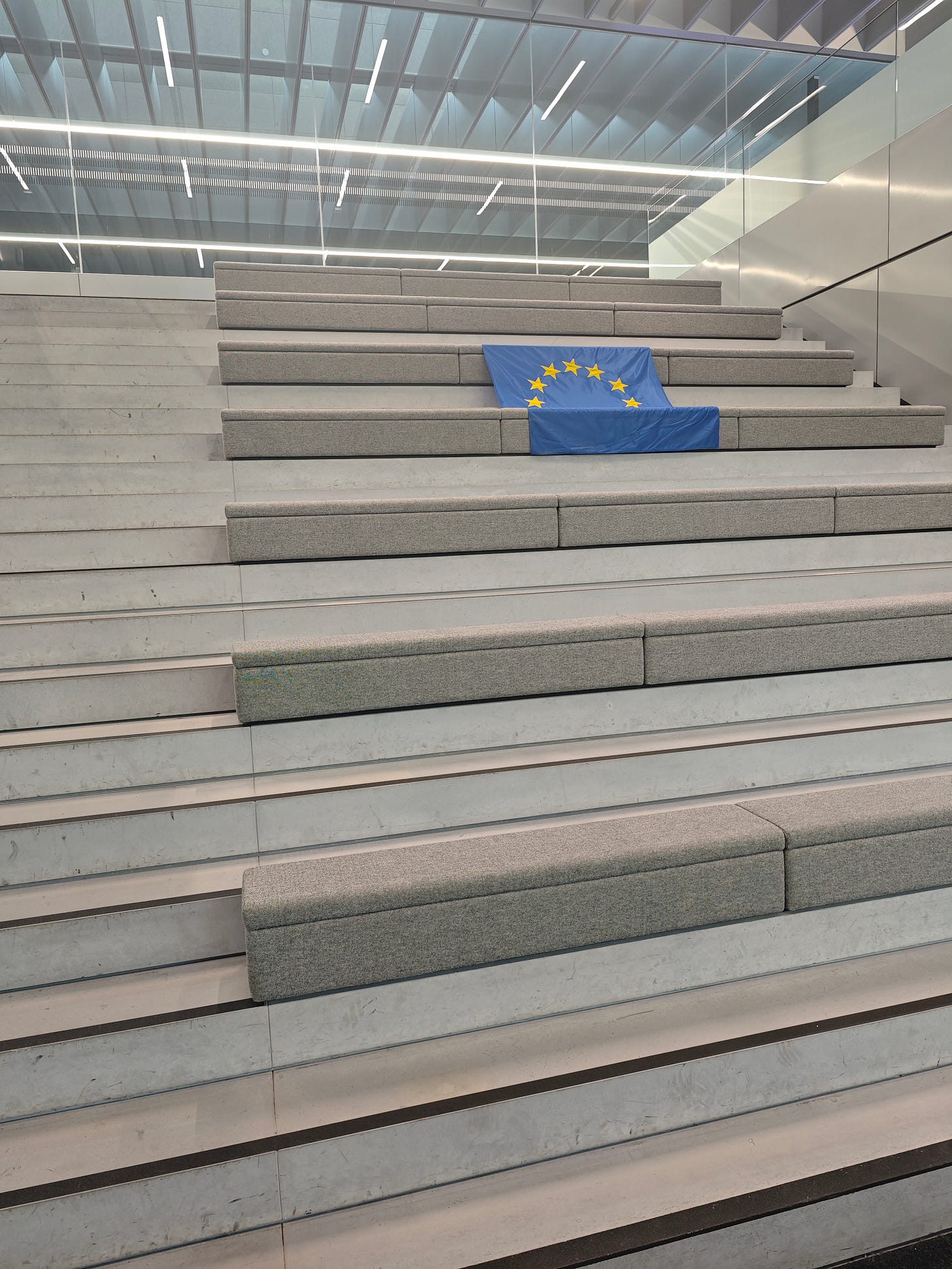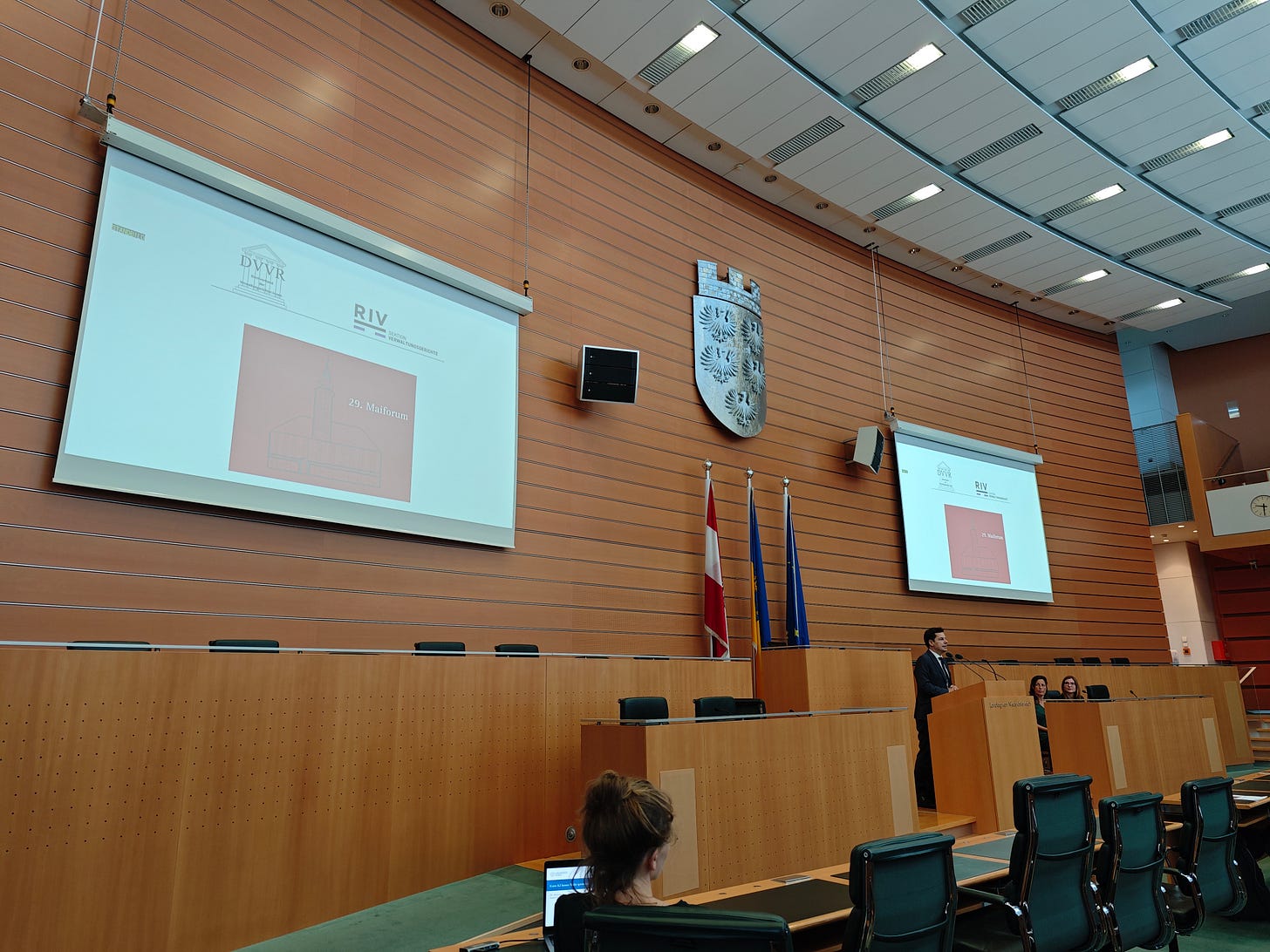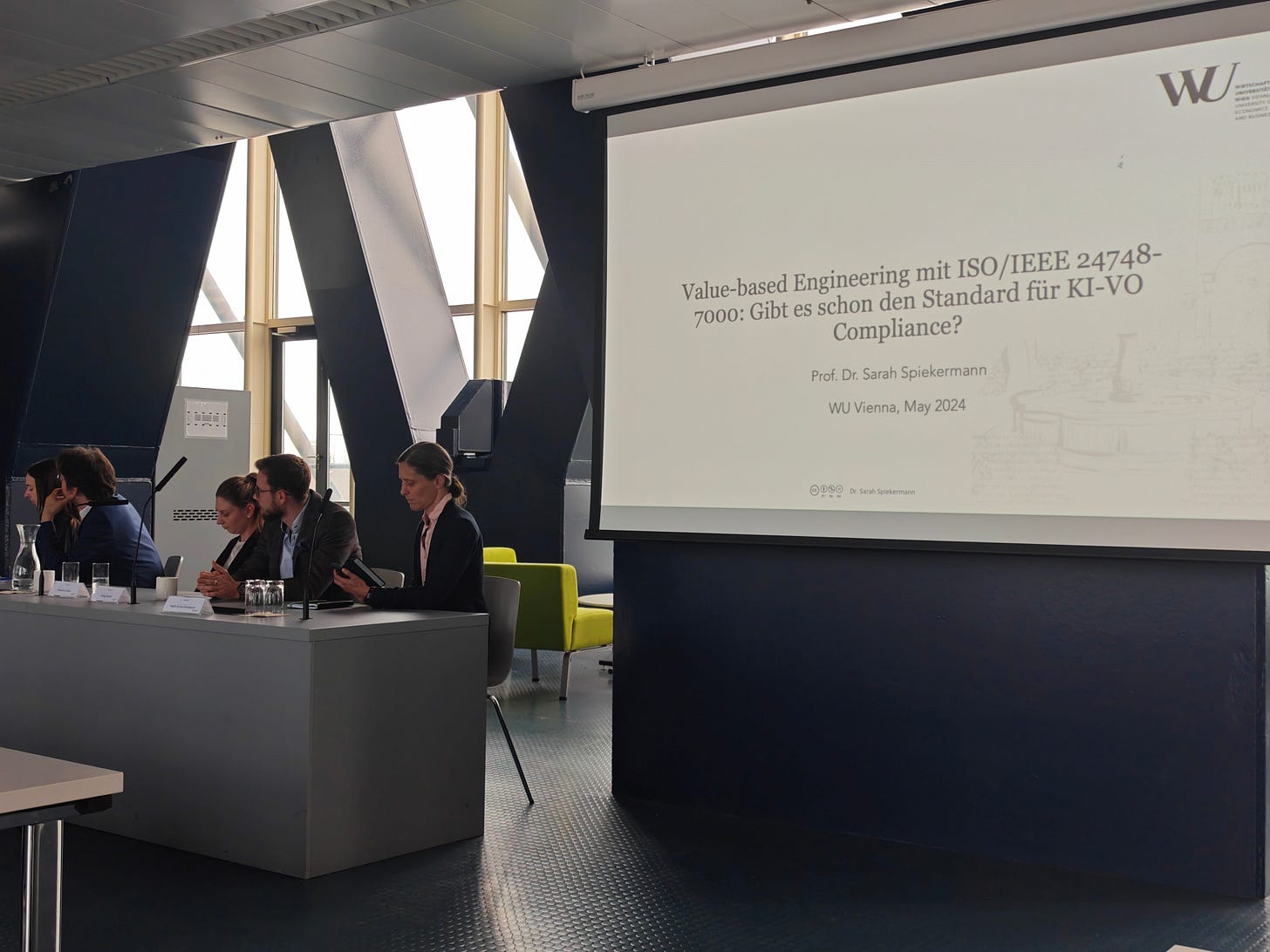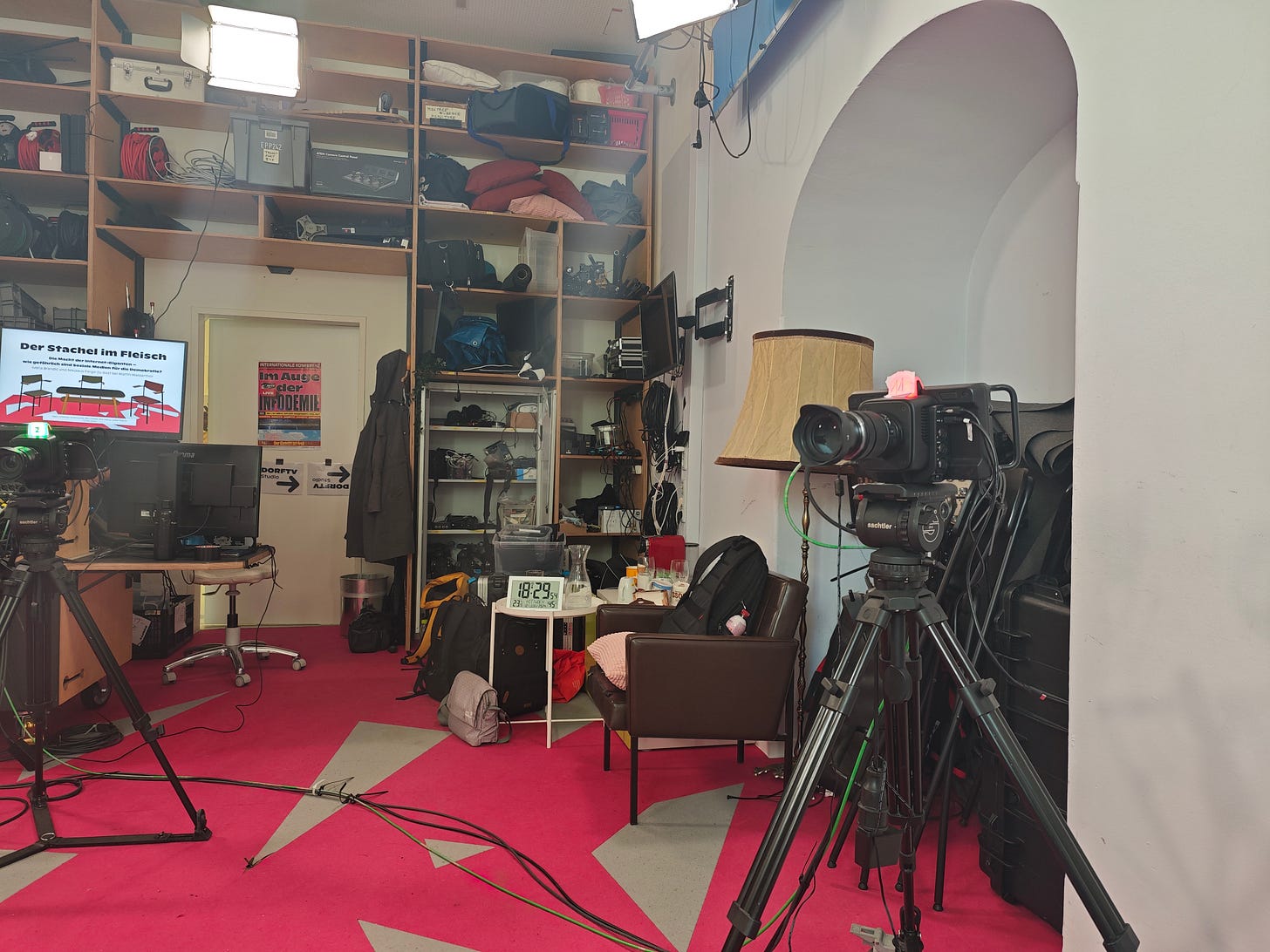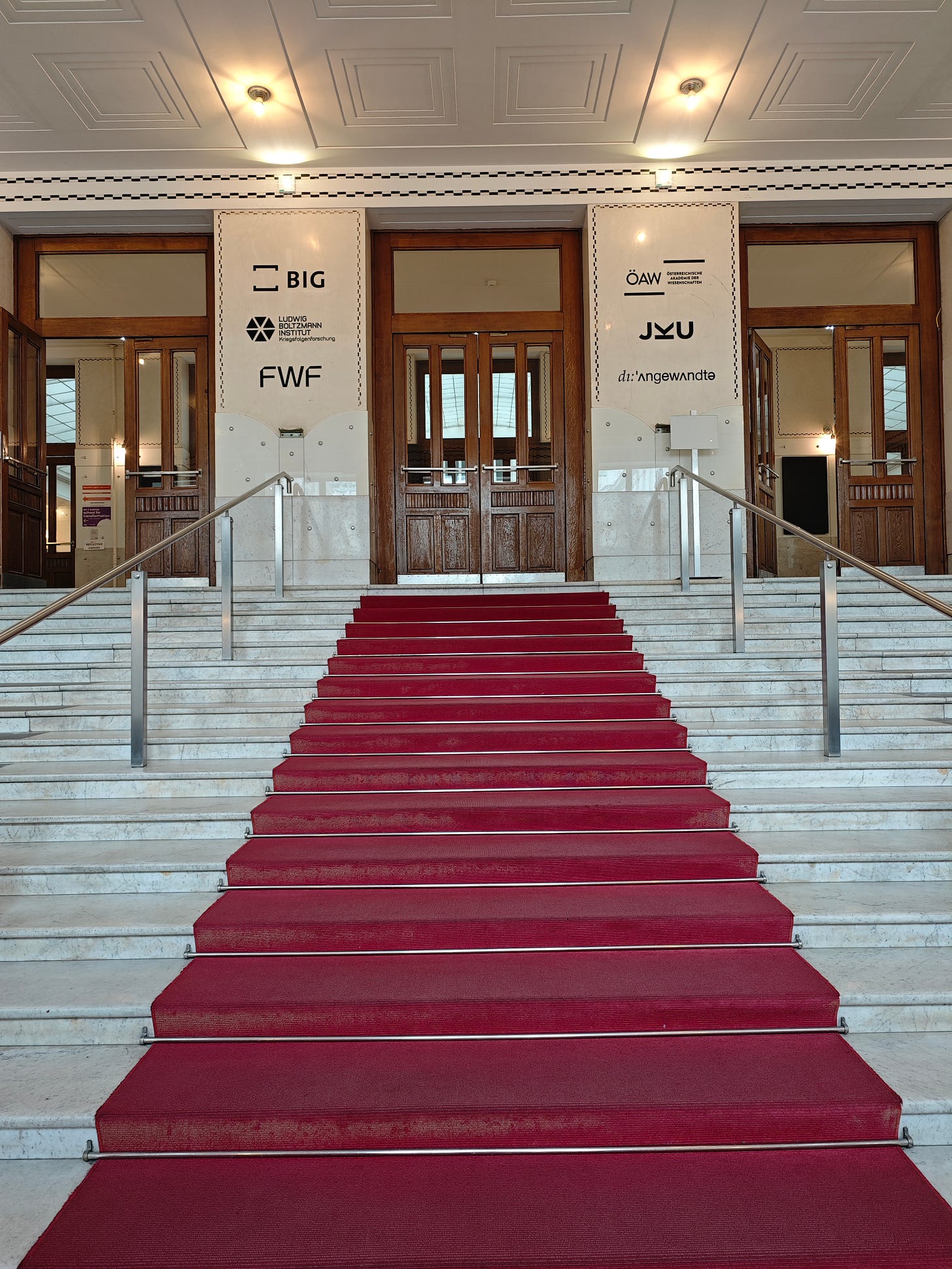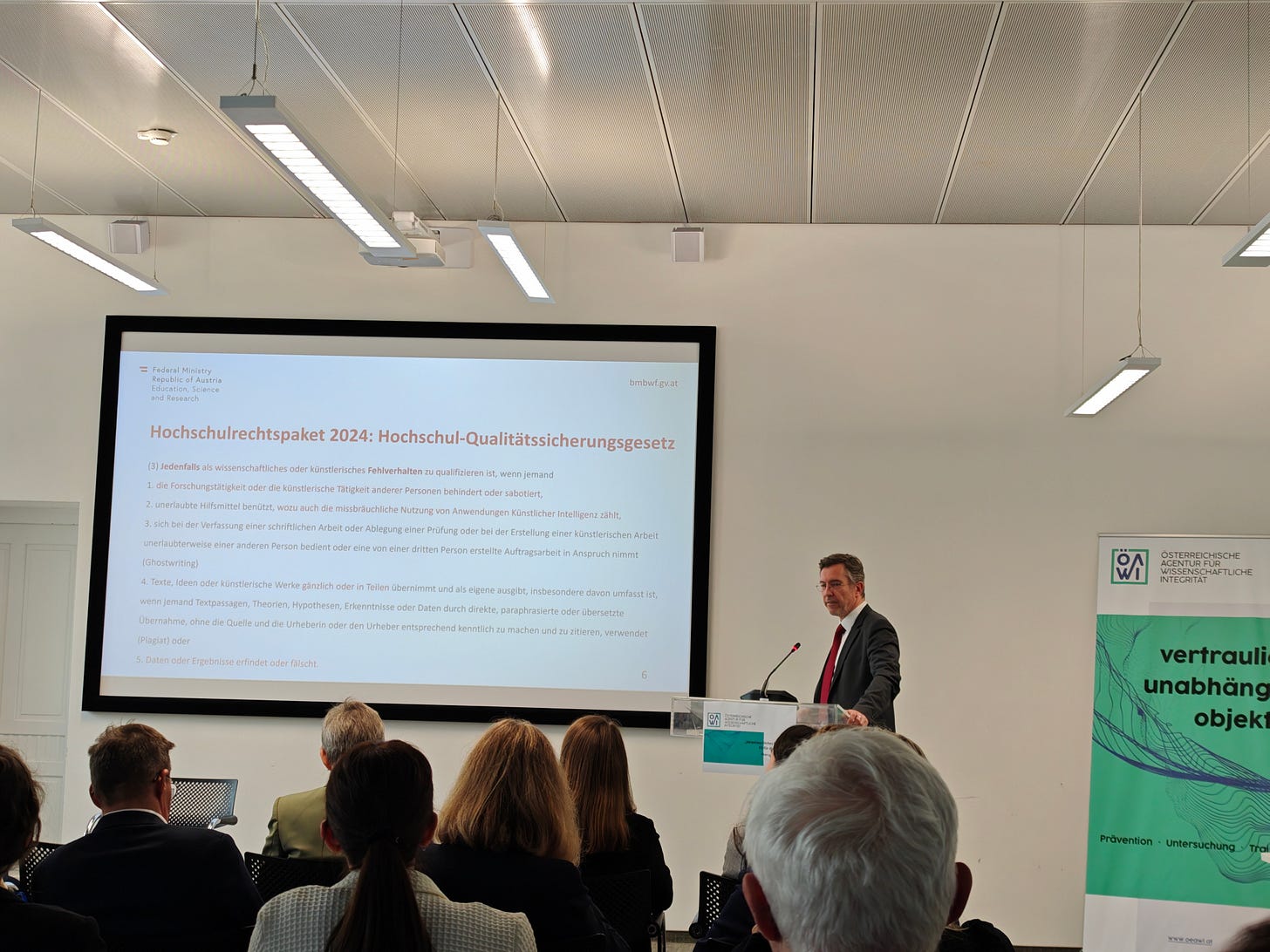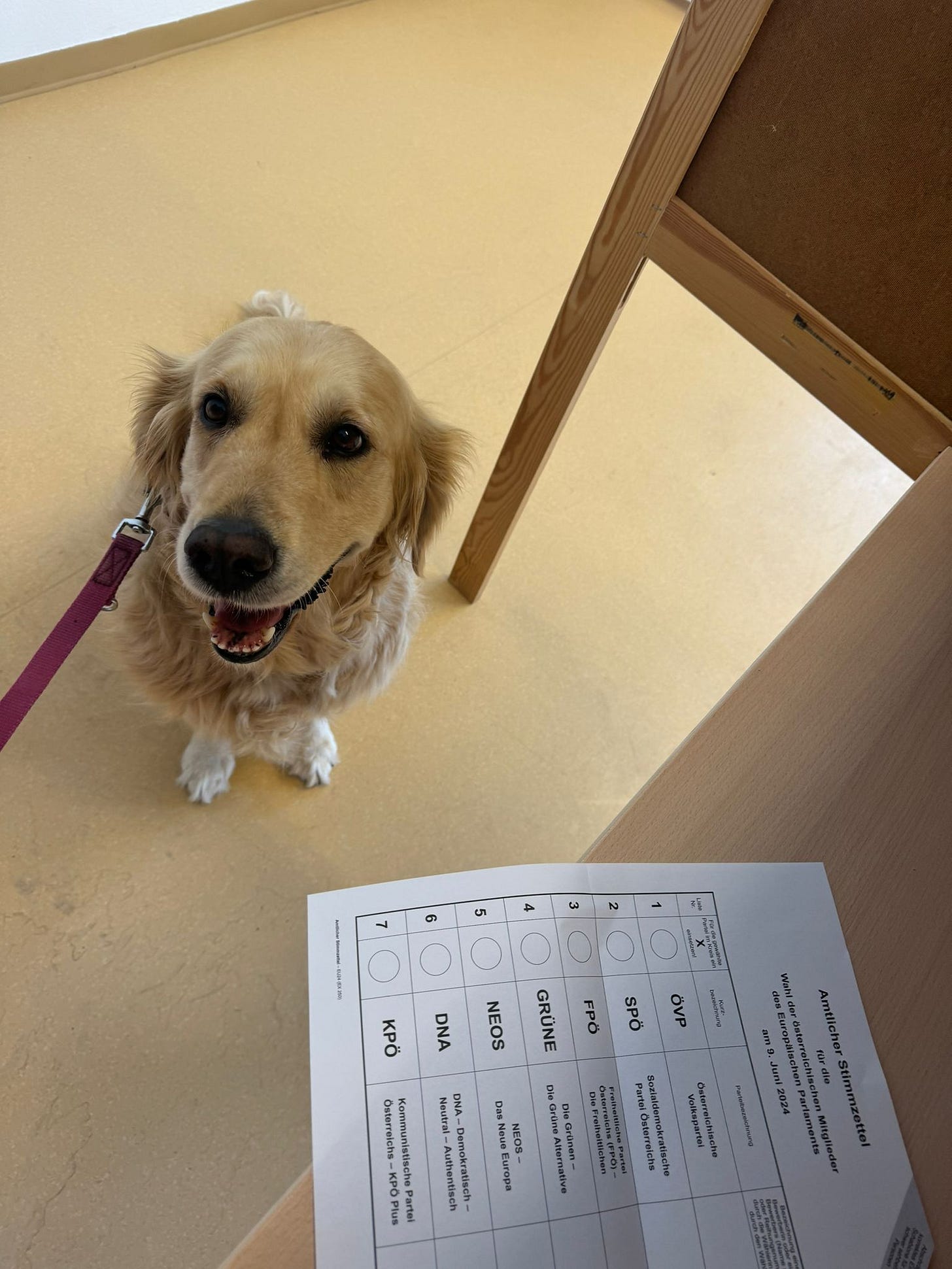There is nothing better than a sunny Satuarday afternoon in spring, spent in Hannover, waiting in a friend’s’ garden for a birthday party happening there a little later.
I know two perfect songs for the feeling.
And this is the perspective I had when looking up in my deckchair:
NSFW (Nikolaus’ Song For the Week)
This week’s song is an old classic: Laurie Anderson’s song “Strange Angels”. I still love it. 35 years old this year, but still fresh.
It’s also on YouTube.
Retrospect
This was a busy and very interesting week. A lot of my time has beem consumed by all the debates on artificial intelligence, in all facets.
AI
It was interesting how many people were surprised about Apple joining the AI-race, finally. Their presentation on Apple Intelligence was intensely reflected, also in Austrian media and I was invited to contribute to some aspects.
OE1 Mittagsjournal and ZIB covered the story (both with an interview I was invited to).
When being in the newsroom (“Auf dem Berg”) I was - again - stunned on how difunctional and ugly and gigantomanic this place is. Getting there from the city center by bicyle takes about 40 minutes, up a hill. The newsroom looks and feels - exactly - like Vienna airport, with all the lockers and gangways and security doors and shaky stand tables and the annoying echo - even the colour code is identical in grey, black and white.
One of the many weird details is this stair (with a European flag on the floor ?!) leading to just another floor of empty workstations.
The dichotomy between the official success stories (here or here) full of marketing speech about the architecture and the obvious problems coming with many of the decisions taken is ridiculous and a negative example of a broken top down process that tries to be “innovative”.
It’s in particular bad for the brilliant people maling radio there, as they com from and remember this geme “Funkhaus Wien” right in the city center.
The newsroom architecture reminded me - somehow - of an event in another example of really bad architecture - the “Niederösterreichischer Landtag” in St. Pölten where I participated in a panel on AI in judicial decision making in administrative law.
Contentwise, my main point at the interviews was (and is) that just like with GDPR, the European legislator is again overtaken and blown away by - obvious - technological, social and economical developments coming from outside Europe. When talking about this I often urge my students to watch this - just perfect - presentation Steve Jobs gave in 2007 when announcing the iphone.
This was five years before GDPR was publicly announced as a commission-proposal in 2012 with Vivian Reding giving a speech that could be easily reused for the AI-act.
I brought a similar argument in the Q&A session after an interesting presentation of Prof. Dr. Sara-Spiekermann-Hoff at a brilliant conference organised by Iris Eisenberger and her team from the department on Tuesday.
One can purchase the IEEE-standard Spiekermann-Hoff was refering to here (Paywall, ironically, though). It’s a standard trying toinclude consideration of ethical values throughout the stages of (AI-) concept exploration and development.
One of the sources on market developments I very much rely on when explaining my position in such a debate is Stratecherey. I have been a paying and happy subscriber of this daily newsletter for many years now, and it’s really worth the money. One of the current freely available articles explains Why Apple Intelligence is Right on Time. The key sentence there for me is “you really do need better hardware to run AI” which is one of the reasons why this Apple-move is so interesting and powerful - with, roughly, 2.2 Billion devices currently in the market and more than 220 Million iphones sold last year alone.
In a one-hour talkshow hosted by Martin Wassermair on Dorftv.at (“Der Stachel im Fleisch - Politikgespräche mit Vorwärtsdrang”) I spoke about internet history, media consumption and, again, about
Prof. Dr. Ivona Brandić (Institute of Information Systems Engineering, HPC Research Group, TU Wien) highlighted some more arguments on the environmental and social costs of AI.
This is what I saw when talking on TV, :-)
I took the picture inspired by my brilliant #arsboni-guest Prof. Dr. Fabian Schmieder, who did the same when announcing our talk on LinkedIn.
This is, in my view, a very relevant #arsboni-episode as I have hardly ever heard anyone speaking so openly about a ransomware-atttack.
Good Scientific Practice
OEAWI had their yearly conference this week and I was attending (in parts, in the audience). The event was hosted by FWF in their beautiful premises (Otto Wagner’s Postsparkasse).
Head of Unit in the Ministry of Research Elmar Pichl gave a presnetation of very recent changes in the Austrian law of quality control at Universities (Hochschul-Qualitätssicherungsgesetz).
The new provision (§ 2a Hochschul-Qualitätssicherungsgesetz) on academic misbehavior is very interesting (and relevant) - it also mentions AI explicitly (§ 2a section 3 subsection 2).
I learned there, in particular, that the ministry is of the opinion that this provision doesn’t tell (or change) anything about the subjective elements (“subjektive Tatseite”) of academic fraud.
Ars Docendi
UNIVIE’s Center for Teaching and Learning kindly produced two Videos on the Legal Tech Hackathon we received an ars docend price for.
Michael Beier is the brain and the heart behind this deserving all the credits;
I was invited to contribute as well
Semesterfrage
UNIVIE has a tradition of asking one general landmark question per term. This time it’s whether we know what AI will know.
The final conference on this will take place on Monday, June 17th, at 18.00 CET.
I am very proud to be on the panel, but you should come for the other - just brilliant - panelists, for the beautiful venue (“Großer Festsaal”) and for the meet & greet after the foprmal part of the event. If you can’t make it in person - a stream will be provided. If you can make it in person (and you should!) - entry is free, registration expected.
Rudolphina has an interview with me on the matter.
PHD-Pitchtalk
On Tuesday, the International Office is organising a PHD-Pitchtalk with Kyoto University that I am chairing. I haven’t found any public info yet, but will provide an update whenever I receive any news here.
#arsboni
Friday, September 14th, at 10.00 am:
In addition, I will have two sessions in the laundry: One with Mag. Michaela Krömer on climate actions, including a very interesting Austrian case.
The other one will be with Muna Duzdar. Duzdar is an attorney and member of the Austrian Parliament for the Social Democrats. She is the spokesperson on media affairs for her party. We will speak about their positions on ORF and media politics, also in the light of the upcoming elections.
Kölner Tage Datenschutzrecht 2024
Thursday, June 20th, and a travel to Coulogne will bring the opportunity to see Prof. Niko Härting again, who is an excellent lawyer and a very kind colleague. It will cause the funny situation that my presentation will be followed by two more interesting ones, both given by ex-students I had the privilege to work with at different Universities (Meike Kamp is a EULISP-alumna, Max Schrems studied in Vienna).
Härting is also the host of a very intersting Podcast you might want to check out, "Follow the Rechtsstaat".
Daisy
supported the European elections brilliantly by carefully examining the polling booth.
© Anna Forgó
Have a wonderful week!
Kind regards
Nikolaus (Forgó)


